* scroll down for the english text
.jpg)
(UPDATE: Η ταινία κέρδισε το μεγαλύτερο βραβείο στην ευρώπη για τον παιδικό κινηματογράφο στο φεστιβάλ BUFF του Μάλμο).
Είδα την ταινία στον κινηματογράφο Ντράκεν, την επίσημη αίθουσα προβολών του φεστιβάλ. Μετά την προβολή, ακολούθησε συζήτηση μεταξύ του σκηνοθέτη της ταινίας, Μάρτιν Χόγκνταλ και ενός πραγματικά ενθουσιασμένου κοινού. Αργότερα, συναντήθηκα μαζί του για ένα καπουτσίνο σε ένα υπέροχο, ζεστό καφέ στο λόμπι ενός ξενοδοχείου. Μου μίλησε για την ταινία του, αλλά και για πολλά άλλα:
Γνωρίζοντας τον Μάρτιν Χόγκνταλ
Η ταινία σου παρουσιάζει την ιστορία του εντεκάχρονου Μικ, που μένει με τον αλκοολικό του πατέρα, και την παρέμβαση της Πρόνοιας που έχει σαν αποτέλεσμα τον αποχωρισμό του παιδιού από τον γονιό του. Στη Σουηδία, αν και το βιοτικό επίπεδο είναι υψηλό, το πρόβλημα του αλκοολισμού είναι έντονο.
«Ναι», μου απαντάει ο Μάρτιν. «Στη Σουηδία έχουμε χειμώνα για πολλούς μήνες, χωρίς το φως του ήλιου. Είναι η “Σουηδική μελαγχολία”, όπως τη λένε. Ο δεσμός μας με το αλκοόλ εδώ στον Βορρά είναι ιδιαίτερα στενός. Νομίζω ότι είναι ένας τρόπος να αντιμετωπίζεις την πραγματικότητα και να εξωτερικεύεις τα συναισθήματά σου πιο εύκολα. Ως γνωστό, οι βόρειοι λαοί έχουν πρόβλημα με αυτό. Το αλκοόλ είναι συνδεδεμένο με την κουλτούρα μας και αποτελεί την αιτία μιζέριας, διαλυμένων οικογενειών και πολλών άλλων κακών. Πολλοί άνθρωποι το χρησιμοποιούν σαν φάρμακο κατά του άγχους. Αλλά δεν λειτουργεί έτσι. Σηκώνεσαι το επόμενο πρωί με περισσότερο άγχος και μετά αρχίζεις να πίνεις ξανά. Είναι φαύλος κύκλος. Φυσικά, το πρόβλημα έχει τις ρίζες του στην κοινωνία και στη γεμάτη άγχος ζωή μας».
.jpg)
Στην ταινία, ο αλκοολικός πατέρας δεν είναι βίαιος, αλλά μάλλον ένας συμπαθητικός χαρακτήρας. Γιατί επέλεξες να τον παρουσιάσεις έτσι;
«Νομίζω ότι είναι σημαντικό να μην διαχωρίζεις τα πράγματα σε μαύρο και άσπρο, τους ανθρώπους σε καλούς και κακούς. Υπάρχει ένα ωραίο Σουηδικό ρητό: Να είσαι συμπονετικός, γιατί ο καθένας έχει τα προβλήματά του. Δες τον κόσμο μέσα από τα μάτια του άλλου. Ο αλκοολικός πατέρας στην ταινία έχει το πρόβλημα του, αλλά δεν είναι κακός άνθρωπος. Απλά χρειάζεται βοήθεια και λίγη υπομονή».
Ήμουν περίεργη από πού εμπνεύστηκε να βάλει χέβι μέταλ μουσική στην ταινία και ο Μάρτιν μου εξήγησε:
«Το χέβι μέταλ συνδέεται με τον κύριο ρόλο του έργου. Είναι ένα είδος μουσικής που προέρχεται από τα μπλουζ του μαύρου πληθυσμού των σκλάβων της Αμερικής. Τραγουδούσαν για όλα όσα περνούσαν στη ζωή τους. Οπότε η μουσική της ταινίας μεταφέρει από μόνη της ένα μήνυμα. Είναι η μουσική που αντιπροσωπεύει τους ανθρώπους που είναι οι παρείσακτοι της κοινωνίας, και αυτοί είναι οι άνθρωποι που με ενδιαφέρουν ως χαρακτήρες. Επίσης, είναι ενδιαφέρον το πώς ο Μικ συνδέεται με τον μπαμπά του μέσω της μουσικής. Το χέβι μέταλ για μένα είναι κάτι από το οποίο αντλείς δύναμη και εκτονώνεις τα συναισθήματα σου.
.jpg)
Η ιστορία της ταινίας είναι για ένα παιδί που προσπαθεί να βρει τον δρόμο του. Το "να βρεις τον δρόμο σου", κυριολεκτικά και μεταφορικά, είναι πάντα ένα μεγάλο ανθρώπινο ζήτημα. Ο σκοπός της ταινίας είναι να δώσει δύναμη και κουράγιο. Αυτό που χρειαζόμαστε τώρα πιο πολύ παρά ποτέ είναι να εξυψώσουμε το ανθρώπινο πνεύμα.
Χρειαζόμαστε καινούργιες ιδέες, που το σινεμά μπορεί να μας τις δώσει και να φέρει τους ανθρώπους πιο κοντά, δίνοντάς μας να καταλάβουμε πόσο ίδιοι είμαστε. Αντίθετα πρέπει να σπάσουμε τα φράγματα που μας χωρίζουν. Το μεγαλύτερο ψέμα είναι ότι οι άνθρωποι είναι διαφορετικοί. Όλοι έχουμε τις ίδιες ανάγκες και όλοι θέλουμε να είμαστε ελεύθεροι, ώστε να μπορούμε να βρούμε την δική μας ευτυχία».
Τι πιστεύεις ότι συμβαίνει στον κόσμο σήμερα;
«Προφανώς έχουμε ένα καπιταλιστικό σύστημα που δεν λειτουργεί. Είναι μια καταστροφική δύναμη που δεν ταιριάζει στην ανθρώπινη φύση. Δεν ήταν να γίνουν έτσι τα πράγματα και τώρα έχουμε πέσει μέσα σε μια "μαύρη τρύπα". Ο φόβος και η απληστία είναι ένας πολύ κακός συνδυασμός. Χρησιμοποιούμε όλα τα φυσικά αποθέματα και δεν μπορούμε να συνεχίσουμε να κατασκευάζουμε πράγματα, γιατί κάποτε θα τελειώσουν.
Πρέπει να βρούμε εναλλακτικές οδούς και πρέπει να τις βρούμε άμεσα. Από την άλλη υπάρχει αρκετό νερό και φαγητό στον κόσμο για όλους, αλλά προτιμάμε να το πετάμε και να το καίμε για να μην πέσουν οι τιμές του. Η ανθρώπινη αξία υπολογίζεται με το αν μπορούμε να δουλέψουμε και να καταναλώσουμε. Και αν είσαι άρρωστος ή ηλικιωμένος δεν έχεις καμία αξία, είσαι πρόβλημα.
Και αυτό θέλω να αλλάξει. Η ανθρώπινη ζωή έχει πιο μεγάλη αξία από τις ιδεολογίες. Μας πουλούν ψεύτικα όνειρα και αυτό το βλέπουμε ακόμα γύρω μας. Κάποιος πάντα σου πουλάει κάτι, αυτοκίνητα, φλατ σκριν τηλεοράσεις, ακόμη και τρόπους ζωής. Και πρέπει να πάρεις δάνεια για να τα αγοράσεις όλα αυτά και να δουλεύεις, να δουλεύεις, να δουλεύεις, για να αγοράσεις πιο πολλά. Και αν δεν μπορείς να ξεπληρώσεις τα δάνεια, παθαίνεις κατάθλιψη και μετά σου πουλάνε αντικαταθλιπτικά και από αυτά βγάζουν πολλά λεφτά επίσης.
Έτσι λειτουργεί ο κόσμος. Αλλά είναι πολύ κακό να αγοράζεις την ευτυχία σου. Όμως αυτός ο τρόπος ζωής φτάνει σε ένα τέλος. Όλα θα διαλυθούν, αλλά ίσως έτσι μόνο μπορέσουμε να μάθουμε και να ξαναρχίσουμε από την αρχή».

Υπάρχει κάτι αισιόδοξο σε όλα αυτά;
«Σίγουρα. Ο περισσότερος κόσμος θέλει να αλλάξουν τα πράγματα. Μόνο μια μικρή μειοψηφία θέλει να έχει τα πάντα και είναι άπληστη. Tα παιδιά μπορούν να μάθουν από τα δικά μας λάθη και να μην κάνουν και αυτά τα ίδια. Τώρα πια μεγαλώνουν με το διαδίκτυο και έχουν φίλους από όλο τον κόσμο. Δεν μπορείς να τους πεις ψέματα και να τα ξεγελάσεις, θα μάθουν την αλήθεια μόνα τους.
Όλοι οι κινηματογραφιστές λοιπόν έχουν ευθύνη για τα μηνύματα και τις εικόνες που στέλνουν προς τα έξω. Ο Ρόι Άντερσον σε ένα βιβλίο γράφει ότι, όπως ένας νευροχειρουργός έχει ευθύνη να κάνει τη δουλειά του καλά, ώστε να μην βλάψει κανέναν άνθρωπο, με τον ίδιο τρόπο, ένας καλλιτέχνης πρέπει να είναι υπεύθυνος για τα μηνύματα που στέλνει στον κόσμο. Νομίζω ότι αυτό είναι ένα καλό παράδειγμα.
Ο κινηματογράφος είναι σαν καθρέφτης. Αντανακλά τον εαυτό μας, τους ανθρώπους γύρω μας και μπορεί να αλλάξει τις ανθρώπινες αξίες. Το να διηγείσαι μια ιστορία ήταν πάντα πολύ σημαντικό και είναι ακόμα περισσότερο σήμερα. Όπως στην ιστορία της ταινίας μας, ένα αγόρι είναι μόνο του, ο μπαμπάς του δεν είναι εκεί, έχει μια διαλυμένη οικογένεια, δεν έχει σπίτι και δεν έχει φίλους. Και στο ταξίδι του βρίσκει και φίλους και οικογένεια, που, όταν τους χρειαστεί, έρχονται να τον βοηθήσουν. Και αυτό είναι το αισιόδοξο μήνυμα: ασφάλεια, ελπίδα και το συναίσθημα ότι δεν είσαι μόνος. Νομίζω πως αυτό έχει πολύ μεγάλη σημασία. Έτσι αισθανόμουν κι εγώ όταν ήμουν μικρός».
trailer
----------------------------------------
UPDATE: The ICE DRAGON won the biggest children's film award in europe at the BUFF Festival in Malmo
THE ICE DRAGON
.jpg)
During the film festival, I was going to bed late but waking up at 7am sharp, through the noise of drilling and hammering, giving me surely an up-tempo start of the day. There was some construction work taking place in the hotel. The sound of “metal hammer” was my alarm and although quite painful at times, I fill nostalgic about it now. Maybe because the metal sound reminds me of:
THE ICE DRAGON, a fantastic adventure Swedish fairy-tale that is ingeniously punctuated by heavy metal music. I watched it at Draken cinema, the main festival venue, as the closing film of the festival. The screening was followed by Q&A between the director, Martin Högdahl and an audience full of enthusiasm. Later on, I met with him for a cappuccino at a lovely hotel café and he talked to me about his film and much more:
Meeting Martin Högdahl
Your film is the story of the 11-year old Mik that lives with his alcoholic father, but the authorities intervene and separate them.
Sweden has high quality living standards, yet the problem of alcoholism is evident…
“Yes” Martin replied. “In Sweden we have long winters and many months of darkness, it’s called the 'Swedish melancholy'. There is a strong bond to alcohol; we always had it up here at the north. I think it’s a way to cope with things and to get emotions out, because people are holding back their feelings. Alcohol is knit in our culture and it’s a source of misery, broken families and cause for lots of bad things. People use it for anxiety and as a medicine. But it just works for the moment, so you wake up with the same anxiety, and then you start drinking again. You are in that spinning wheel. The problem is rooted of course in our society, the anxiety originates from the way we live our lives.”
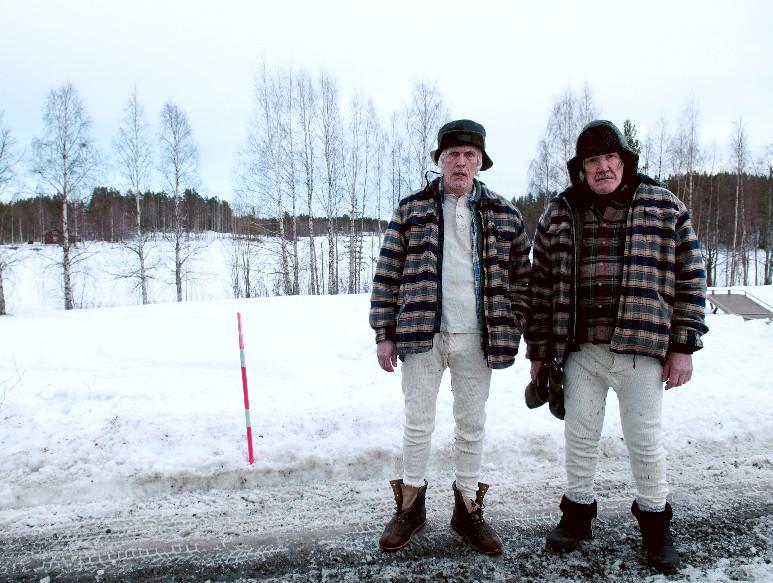
In “Ice Dragon”, the alcoholic dad is not abusive and we tend to like him as a character. Why did you choose to portrait this role in that way?
“I think it’ s important not to paint people in black and white, good and bad. There is a saying that is pretty nice in Swedish: “just have compassion, all people have their own problems in life”. Have empathy and see the person through their eyes. Everybody has something to struggle with. The father is trying to survive. Yes, he is an alcoholic, but he is a good guy. He has his own problem to work with, and he needs help, so we need to show compassion and have some patience.”
I was curious about how the idea of metal music came in the film, and Martin explained this to me:
“The heavy metal theme comes from the main character. Metal has strong symbols. It comes from the blues that was created by black people that were slaves in America. They started playing guitar and sing about their life, to help them cope with it. So the music has a message in itself.
It is for people that are the outcasts of our society, and these are the people I like to talk about. It’ s nice because the music unites Mik with his father. Metal for me is something to get strength from and a way to release emotions…
The film is the story of a child trying to find his way home. Finding your way home both mentally and physically is a struggle that all humans have and it’s a deep human issue. The aim of the film is to give power and strength. What we need now more then ever is to lift human spirit.
Culture, art and films are now so important. They give birth to new good ideas and can show us new ways and bring people together, instead of spreading fear and building up walls between people. They help us realise that we are all very much the same. It’s important to break down the borders of the world that separate us. The biggest lie is that people are different. We all have the same needs and we all want freedom to pursue are own happiness.”
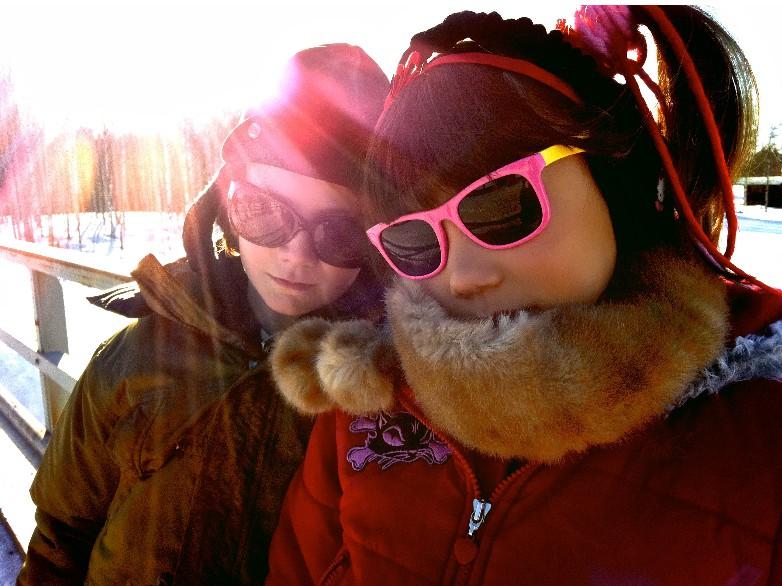
What is your opinion of the situation in the world today?
“We have a capitalistic system that obviously is not working. It is a destructive force and it is not built to work with human condition. It was not meant to be this way, and now, we are in a black hole. Fear together with greed is a really bad combination. We are using all nature’s resources, but it’s impossible to keep on consuming and making things, because the resources are going to end. We have to find alternative ways and we have to do it now. On the other hand, there is enough water and food on earth to feed everybody but we just choose not to do it. We rather burn it or throw it away to keep the prices up.
The human values are based on whether you can work and consume and on how much you can consume. And if you are sick or old, unable to work, you become a burden to society, you don’t have any value any more. And that’s something I want to change. Human life is precious, it always has to come first, it has to be above principles and ideologies.
We were sold false dreams and we still see it everywhere we go, somebody is selling something to you, stuff, cars, flat screen TVs and lifestyles. And you get loans, so you can buy these things and, in order to pay the loans, you have to work, work, work, so you can buy more stuff. If you can’t pay the loans, you get depressed and then they sell medicine to you, so you won’t be depressed, and they make a lot of money on that too. That’s how the world worked. It’s wrong to learn to buy your way to happiness.
But the way we live now is coming to an end, everything is going to crash and probably that’s the only way we can learn and then we have to start all over again.”

Is there anything positive that we could hold on to?
“Definitely. The majority of the world consists of good people that want good things and have the power to change things. It’s just a small amount of people that gain power and want more and more. Children can learn through our mistakes so they won't make the same again. They are growing up on the Internet, they have a global human world and they make friends all over the world. You can’t trick them, you can’t lie to them, because they will find out.
So, you have to be aware as an artist or filmmaker of what you are sending out. At least, take some responsibility for it. In one of his books, Roy Andersson talks about a brain surgeon that has to be responsible for what he does, because if he doesn't, he can seriously hurt people. In the same way, the artist has to be very aware of what he is doing, what he is sending out to the world. I think this is a pretty good example.
Film is like a mirror, you are reflecting yourself and people, and it can change the way we look at each other, it can change our values. Story telling has always been important and now, even more. Like in this story, a boy is alone in the world, his father is not there, he has a broken family, he has no home and he has no friends. And through his journey he finds friends and a family, and, when he really needs help, they come for him.
And that’s the positive message, the comfort in it. Just comfort and hope and the feeling that you are not alone. I think that’s very important. That’s the feeling I had when I was little.”

Δύο Σουηδάκια σε ένα χιονισμένο δάσος κοντά στο Γκέτεμποργκ όπου είχα τη δική μου περιπέτεια τύπου Ice Dragon
* Photos by: Lena Lahti and Trond Høines









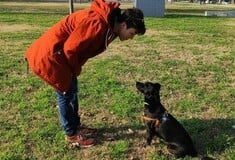
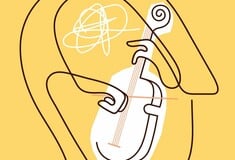
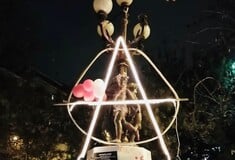
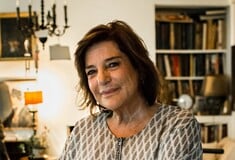
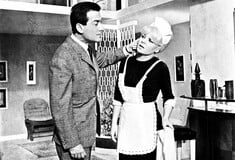
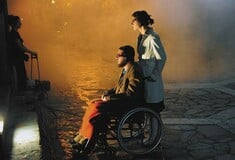
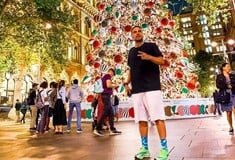
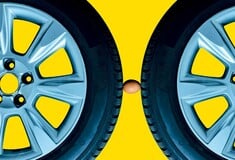

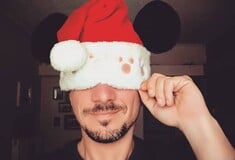
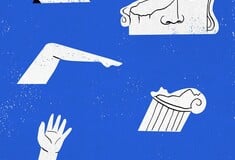
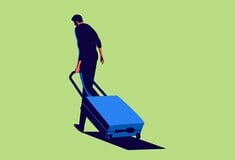
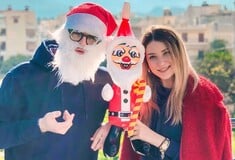
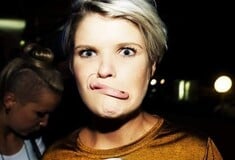
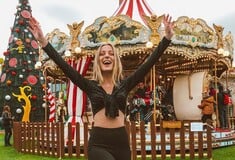
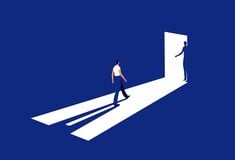
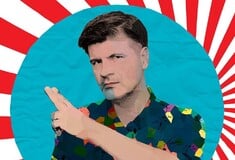
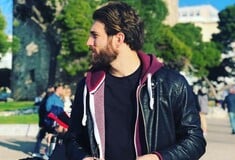
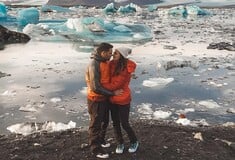
σχόλια